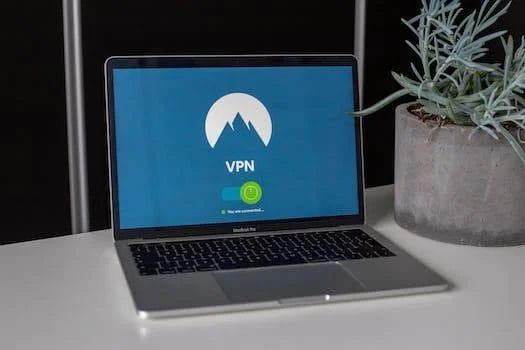Introduction to Virtual Private Network (VPN) and Web Hosting
A Virtual Private Network (VPN) is a crucial tool that enhances internet security by providing an encrypted connection over the internet. In the realm of web hosting, a VPN plays a pivotal role in safeguarding sensitive data transferred between the web host and the client. Web hosting, on the other hand, is a service that allows individuals or businesses to post a website or webpage onto the internet. A web host, or web hosting service provider, is a business that provides the technologies and services needed for the website or webpage to be viewed on the internet. The combination of VPN and web hosting ensures that your website is not only accessible but also secure from potential cyber threats.
Understanding the Role of VPN in Web Hosting
Understanding the role of VPN in web hosting is crucial for maintaining security and privacy. A Virtual Private Network (VPN) acts as an extra layer of protection, encrypting your data and hiding your IP address. This makes it much harder for hackers to access your information, thus ensuring the safety of your website. Additionally, VPNs can also provide you with unrestricted access to the internet by bypassing geographical restrictions. Therefore, using a secure VPN is integral to web hosting as it safeguards your website from potential threats while also granting you a high degree of internet freedom.
The Importance of VPN Security in Protecting Sensitive Data
The importance of VPN security in protecting sensitive data cannot be overstated. When you use a secure VPN in web hosting, you create a safe passageway for data to travel from your server to the end-user. This encrypted tunnel prevents hackers from intercepting, viewing, or stealing your sensitive information. Whether it’s personal details or financial transactions, a secure VPN ensures your data remains confidential and safe from prying eyes. In this era of increasing cyber threats, using a secure VPN isn’t just an optional extra – it’s an essential part of safeguarding your online operations.
How Secure VPN Helps in Maintaining Privacy in Web Hosting
Secure VPN plays a crucial role in maintaining privacy in web hosting. When you use a VPN, your data is encrypted and sent through a secure tunnel, protecting it from hackers and cybercriminals. It essentially masks your IP address, making your online actions virtually untraceable. This is particularly important in web hosting where sensitive data, such as customer information and financial transactions, are often handled. Therefore, a secure VPN not only ensures the privacy of your website’s data but also builds trust among your users, knowing their information is safe and secure.

The Role of VPN in Preventing Cyber Attacks on Web Hosts
VPNs, or Virtual Private Networks, play a crucial role in safeguarding web hosts against cyber attacks. By creating a secure, encrypted connection between your device and the network, a VPN makes it extremely difficult for hackers to access or manipulate your data. In the context of web hosting, this means that all the sensitive information on your website – from user details to financial transactions – is protected from potential threats. Thus, a robust VPN is not just an optional add-on, but a critical defense tool that ensures the security and integrity of your web hosting.
Advantages of Using a Secure VPN for Web Hosting Services
Using a secure VPN for web hosting services offers numerous advantages. Primarily, it provides an extra layer of security, protecting your website from cyberattacks and data breaches. It does this by encrypting your data, making it unreadable to unauthorized users. Additionally, a VPN ensures privacy by masking your IP address, preventing your activities from being tracked or traced. It also allows you to bypass geographical restrictions, giving you access to content and resources unavailable in your region. Therefore, incorporating a secure VPN into your web hosting strategy is crucial for maintaining safety, privacy, and unrestricted access.
The Impact of Secure VPN on Website Performance and Speed
Utilizing a secure VPN can significantly affect your website’s performance and speed. When you use a VPN, your data travels through a secure tunnel, which can potentially slow down your connection. However, this slight decrease in speed is a small price to pay for the enhanced security that a VPN provides. It shields your website from potential threats and attacks, ensuring your data remains safe. Furthermore, a quality VPN can also offer features like server optimization that can actually boost your website’s loading speed. Hence, incorporating a secure VPN is a crucial step in web hosting, providing a balance between speed and security.

Choosing the Right VPN Service for Your Web Hosting Needs
Choosing the right VPN service for your web hosting needs is a crucial step in maintaining a secure and efficient online presence. A reliable VPN service provides an encrypted connection, ensuring your data is safe from cyber threats. In selecting a VPN, consider factors such as security features, speed, ease of use, and customer support. Also, keep in mind the location of the VPN servers and the company’s privacy policies. Whether you’re running a small blog or a large e-commerce site, a secure VPN service can help protect your data, provide better SEO results, and give you peace of mind.
Real-life Examples: The Consequences of Not Using a Secure VPN in Web Hosting
In recent times, numerous real-life incidents have highlighted the consequences of not using a secure VPN in web hosting. One glaring example is the massive data breach experienced by Yahoo in 2013, where three billion user accounts were compromised. The absence of a secure VPN allowed hackers to easily infiltrate the system, resulting in the exposure of sensitive user data like names, email addresses, dates of birth, and even encrypted passwords. This caused a significant reputation and financial damage to Yahoo. Hence, the use of a secure VPN in web hosting is not just an additional layer of protection, it’s a necessity to safeguard sensitive data and maintain user trust.
Conclusion: The Future of Web Hosting with Secure VPN.
In conclusion, the future of web hosting is inextricably linked with secure VPN. As the digital landscape continues to evolve, so does the need for enhanced security measures. A secure VPN provides that extra layer of protection, ensuring data integrity and confidentiality. It is a vital tool for businesses that prioritize the privacy and security of their online operations. As we move forward, we can expect to see a surge in the integration of VPNs into web hosting services, making the internet a safer place for businesses and users alike.

The Importance of a Secure VPN in Web Hosting
- Security

Introduction to Virtual Private Network (VPN)
A Virtual Private Network (VPN) is a crucial tool that enhances internet security by providing an encrypted connection over the internet. In the realm of web hosting, a VPN plays a pivotal role in safeguarding sensitive data transferred between the web host and the client. Web hosting, on the other hand, is a service that allows individuals or businesses to post a website or webpage onto the internet. A web host, or web hosting service provider, is a business that provides the technologies and services needed for the website or webpage to be viewed on the internet. The combination of VPN and web hosting ensures that your website is not only accessible but also secure from potential cyber threats.
Understanding the Role of VPN in Web Hosting
Understanding the role of VPN in web hosting is crucial for maintaining security and privacy. A Virtual Private Network (VPN) acts as an extra layer of protection, encrypting your data and hiding your IP address. This makes it much harder for hackers to access your information, thus ensuring the safety of your website. Additionally, VPNs can also provide you with unrestricted access to the internet by bypassing geographical restrictions. Therefore, using a secure VPN is integral to web hosting as it safeguards your website from potential threats while also granting you a high degree of internet freedom.
The Importance of VPN Security in Protecting Sensitive Data
The importance of VPN security in protecting sensitive data cannot be overstated. When you use a secure VPN in web hosting, you create a safe passageway for data to travel from your server to the end-user. This encrypted tunnel prevents hackers from intercepting, viewing, or stealing your sensitive information. Whether it’s personal details or financial transactions, a secure VPN ensures your data remains confidential and safe from prying eyes. In this era of increasing cyber threats, using a secure VPN isn’t just an optional extra – it’s an essential part of safeguarding your online operations.
How Secure VPN helps in maintaining Privacy in Web Hosting
Secure VPN plays a crucial role in maintaining privacy in web hosting. When you use a VPN, your data is encrypted and sent through a secure tunnel, protecting it from hackers and cybercriminals. It essentially masks your IP address, making your online actions virtually untraceable. This is particularly important in web hosting where sensitive data, such as customer information and financial transactions, are often handled. Therefore, a secure VPN not only ensures the privacy of your website’s data but also builds trust among your users, knowing their information is safe and secure.
The Role of VPN in Preventing Cyber Attacks on Web Hosts
VPNs play a crucial role in safeguarding web hosts against cyber attacks. By creating a secure, encrypted connection between your device and the network, a VPN makes it extremely difficult for hackers to access or manipulate your data. In the context of web hosting, this means that all the sensitive information on your website – from user details to financial transactions – is protected from potential threats. Thus, a robust VPN is not just an optional add-on, but a critical defense tool that ensures the security and integrity of your web hosting.
Advantages of Using a Secure VPN for Web Hosting Services
Using a secure VPN for web hosting services offers numerous advantages. Primarily, it provides an extra layer of security, protecting your website from cyberattacks and data breaches. It does this by encrypting your data, making it unreadable to unauthorized users. Additionally, a VPN ensures privacy by masking your IP address, preventing your activities from being tracked or traced. It also allows you to bypass geographical restrictions, giving you access to content and resources unavailable in your region. Therefore, incorporating a secure VPN into your web hosting strategy is crucial for maintaining safety, privacy, and unrestricted access.
The Impact of Secure VPN on Website Performance and Speed
Utilizing a secure VPN can significantly affect your website’s performance and speed. When you use a VPN, your data travels through a secure tunnel, which can potentially slow down your connection. However, this slight decrease in speed is a small price to pay for the enhanced security that a VPN provides. It shields your website from potential threats and attacks, ensuring your data remains safe. Furthermore, a quality VPN can also offer features like server optimization that can actually boost your website’s loading speed. Hence, incorporating a secure VPN is a crucial step in web hosting, providing a balance between speed and security.

Choosing the right VPN Service for your Web Hosting Needs
Choosing the right VPN service for your web hosting needs is a crucial step in maintaining a secure and efficient online presence. A reliable VPN service provides an encrypted connection, ensuring your data is safe from cyber threats. In selecting a VPN, consider factors such as security features, speed, ease of use, and customer support. Also, keep in mind the location of the VPN servers and the company’s privacy policies. Whether you’re running a small blog or a large e-commerce site, a secure VPN service can help protect your data, provide better SEO results, and give you peace of mind.
Real-life Examples: The Consequences of not using a secure VPN in Web Hosting
In recent times, numerous real-life incidents have highlighted the consequences of not using a secure VPN in web hosting. One glaring example is the massive data breach experienced by Yahoo in 2013, where three billion user accounts were compromised. The absence of a secure VPN allowed hackers to easily infiltrate the system, resulting in the exposure of sensitive user data like names, email addresses, dates of birth, and even encrypted passwords. This caused a significant reputation and financial damage to Yahoo. Hence, the use of a secure VPN in web hosting is not just an additional layer of protection, it’s a necessity to safeguard sensitive data and maintain user trust.
Conclusion: The Future of Web Hosting with Secure VPN
In conclusion, the future of web hosting is inextricably linked with secure VPN. As the digital landscape continues to evolve, so does the need for enhanced security measures. A secure VPN provides that extra layer of protection, ensuring data integrity and confidentiality. It is a vital tool for businesses that prioritize the privacy and security of their online operations. As we move forward, we can expect to see a surge in the integration of VPNs into web hosting services, making the internet a safer place for businesses and users alike.